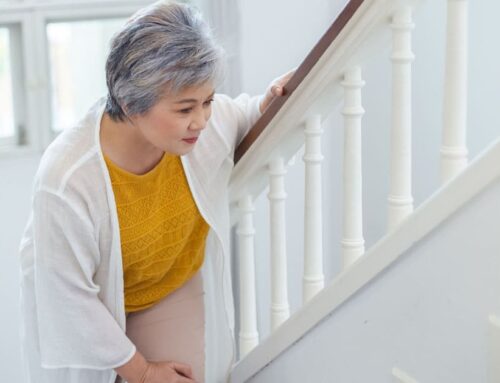There are many benefits to growing older. We become wiser as we learn from a lifetime of experiences. We have a richer sense of the world as our vantage point is expanded. We can also enjoy more of life’s opportunities as we now have the gift of time.
But as we grow older, there are two elements that can pose an increased risk to our physical and emotional health – loneliness and social isolation.
While both can negatively impact our health, there is a distinction between the two.
Loneliness is the feeling of being alone, regardless of the amount of social contact, according to the Centers for Disease Control and Prevention. Social isolation on the other hand, is a lack of social connections.
Why does age increase the likelihood of social isolation and loneliness?
Older adults may find it more difficult to attend social events, see friends or take part in activities that they always enjoyed. Why? The reasons can range from no longer driving, few or no transportation options, as well as health or personal mobility issues.
Moving or experiencing the loss of a spouse, friends or family members can also make it more of a challenge to meet people and form new relationships.
The negative health risks of loneliness and social isolation
In a report from the National Academies of Sciences, Engineering, and Medicine, neither of these occurrences were found to be rare. More than one-third of adults over the age of 45 reported feeling lonely and almost one-fourth of adults aged 65 and older were considered to be socially isolated.
The health risks of social isolation and loneliness include:
- A 29% increased risk of heart disease and a 32% increased risk of stroke.
- A significant increase in a person’s risk of premature death from all causes. This risk rivaled those of smoking, obesity and physical inactivity.
- A 50% increased risk of dementia was associated with social isolation.
- Higher rates of depression and anxiety were associated with loneliness.
How assisted living can help avoid loneliness and social isolation
Families often consider an assisted living community when their parents or other loved ones may need increasing help with daily tasks, are no longer eating healthy, or are beginning to lose some of their quality of life.
But one critical area that may be overlooked is whether your loved one is becoming socially isolated or lonely. If that is occurring, steps should be taken.
Living in an assisted living community can provide many overall advantages for older adults, but one critical benefit is its ability to help your loved one avoid the higher health risks that can result from these conditions.
Consider how an assisted living community could help your loved one remain engaged in life:
- Many opportunities to meet and make new friends
It can become more of a challenge to meet people when we grow older. Your parents may no longer have the built-in opportunities that a career or raising children may have once provided. But an assisted living community makes available everything they need in one convenient location.
Your parents will realize one of the great advantages of community life is the proximity to those who share the same experiences and stories. Friendships naturally occur when residents discover how much they have in common or find others with similar interests.
- There’s no social isolation in a community
Those whose neighborhoods changed or experienced their old friends moving away may have been unprepared to suddenly have few contacts to socialize with. Although we know the importance of staying physically and cognitively active, your parents may find themselves with fewer opportunities to do so.
Assisted living communities make social isolation considerably less likely. They plan and schedule several events every month, from happy hour get-togethers to movie nights to dances. Your parents will find several opportunities to enjoy spending time with others.
- Support to remain active while enjoying the companionship of others
Assisted living communities offer several planned activities – yet another great advantage. With such a wide variety of options to choose from, there is bound to be several of interest to your parents.
Of course, remaining active helps improve a person’s physical health. But having the opportunity to share experiences with others provides an emotional boost as well.
Along with the activities, your parents may find others who share their passion for the arts, painting, spirited book club discussions or taking part in sporting games such as golf or pickleball. The activities and the people are there. It couldn’t be easier.
The Charleston Senior Community
Locally owned and operated, we offer personalized care by our dedicated team members. Setting a new standard in Assisted Living and Memory Care, we don’t define our residents by their limitations or illness but instead believe in focusing on the positive and the possibility.
The Charleston Senior Community includes private apartments for assisted living residents and for those living with Alzheimer’s disease or dementia.
Your loved ones will benefit from our attention to detail, routine health assessments, delicious dining and daily activity programs as we support them to live their best life.
Consider a few of our amenities:
- Chef-led dining program
- Community movie theater
- Salon
- Ballroom
- Live entertainment
- Outdoor patio
- Social lounges
- Housekeeping
If your family is thinking about assisted living or memory care for your loved one, we hope you will consider The Charleston Senior Community. We are a trusted resource and are here to answer any questions. We also invite you to download our complimentary information, A Family Guide to Funding Senior Care & Housing.








